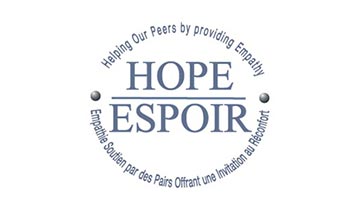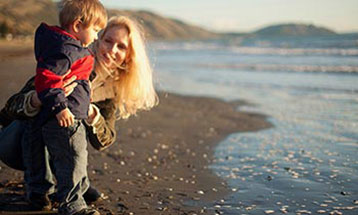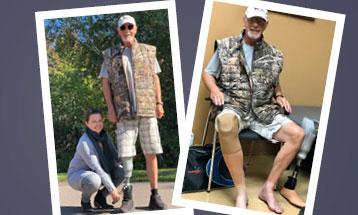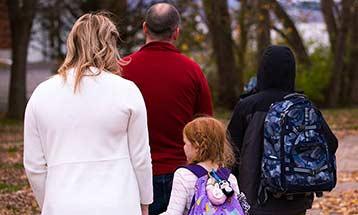
Warrant Officer Frank Mellish, aged 38, served 18 years with the military before being killed in Afghanistan during his seventh overseas deployment.
Warrant Officer Mellish’s mother, Sandra Mellish (Sandy), is a volunteer in the HOPE program (Helping Our Peers by Providing Empathy). HOPE is a program that helps families who have lost a military loved one. She now has ways to cope with the loss of her son and shares her experience as a volunteer with the HOPE Program:
“Grief, the journey, is as individual as a fingerprint.”
Men, women, parents, siblings, and extended family all grieve differently. The extent of personal grief can be greatly magnified if the individual feels isolated in their grief. Isolation, whether self-imposed or due to other circumstances, can amplify the many phases of the grief process.
“Those who are fortunate enough to have friends and family close, particularly during the raw grief process, still find that those who have not experienced a similar loss— through no fault of their own—simply cannot relate,” Sandy states.
This is where the gift of the HOPE peer support program becomes invaluable.
The HOPE program is a peer support initiative that allows volunteers to gently reach out to bereaved military families. The program consists of a peer support volunteer guiding individuals to a place where they are better able to cope with their loss. The single thread that unifies grieving families of serving members or Veterans—and the volunteers—is having experienced the same personal loss.
This personal experience allows the peer support counsellors to meet bereaved families within a shared parallel of grief where they can easily relate. Bereaved families are guided through grief in an empathetic manner, where listening is an important component, as is recognizing personal limits. Both skills are honed through the teachings of the program.
“The empathetic sharing between peers is an exceptionally rare gift which the HOPE Program offers. Since its inception, participants of the HOPE Program have expressed immense gratitude for the calls and concern, but more importantly; for the gift of empathy and understanding of the uniquely tragic set of circumstances which unites us,” explains Sandy.
“Beyond being able to relate to our peers, we are privileged to be invited into some of the most sacred of family dynamics; dynamics that allow us to share stories and memories where we vicariously come to know and recall their lost loved one.”
Sharing of this magnitude could also include sharing raw grief and personal loss that, in terms of counselling needs, requires a more expert form of counselling. When this happens, the peer support volunteer has been trained to immediately connect with the National HOPE Program Manager in Ottawa, Sophie Richard. Confidentiality is extremely important for all conversations and contact information. Peers are always given access to emergency numbers and 24-hour counselling services.
In addition to providing the gift of peer support, members of the HOPE program participate in National Defence briefings, where they explain how bereaved families can benefit from the support offered.
“The gifts offered through the HOPE peer support program have enabled me to personally experience the healing and normalization of traumatic grief. I am honoured to now be able to return the contribution in kind with the same caring and empathy.”
Sandy says, “I would not hesitate to recommend this program to our serving members and Veterans. In fact, I believe the HOPE peer support process is so unique and valuable in its delivery that many other organizations would benefit immensely from its principles and protocol.”
For more information, please visit the HOPE website: www.hope-espoir.com



